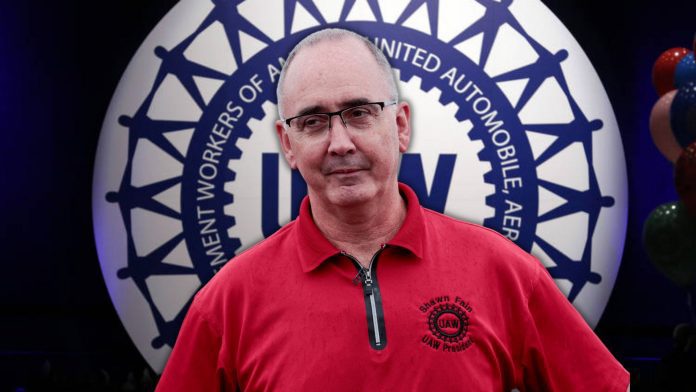The United Auto Workers are getting ready to step up their fight to meet their demands at the negotiating table with one month left before their contracts with the Big Three expire.
UAW President Shawn Fain stated on August 16 that the union would take strike authorization votes the next week before the contracts expire on September 14. Fain cited what the union described as a “slow pace of negotiations” with Stellantis, General Motors, and Ford. Fain urged the members to adopt the strike authorization because it would send a message to the automakers that “we’re done taking their crap and the scraps they want to feed us,” he said.
Strike authorizations are common procedural steps taken during labor talks that give union officials the authority to declare a strike, but they don’t ensure one will occur. Nearly 150,000 UAW members from the three firms will vote next week; such votes are normally well-supported, and results are expected on August 24.
The UAW has cited robust profits through the first half of this year and $250 billion in North American profits the Detroit automakers made from 2013 to 2022. The union has requested a number of changes, including a 46% salary rise over four years, a 32-hour work week paid at 40 hours, universal retiree health insurance, the return of cost-of-living adjustments, an increase in pension benefits, and more.
UAW’s demands may push labor costs to $100 per hour for each worker. However, Fain disagreed with the manufacturers’ comments, claiming that such rises in labor expenses would render them uncompetitive against foreign companies and EV startups like Tesla.
“We’ve been working hard with the UAW every day to ensure we get this agreement right for all our stakeholders,” GM spokesperson David Barnas said in a statement. Ford is delighted to employ more UAW-represented hourly workers in America than any other automaker, according to Ford spokesman Kelli Felker. However, according to Mark Stewart, chief operating officer for Stellantis in North America, the UAW’s demands are a “losing proposition” that could jeopardize jobs, and the firm is attempting to strike a deal “based on realism.”





